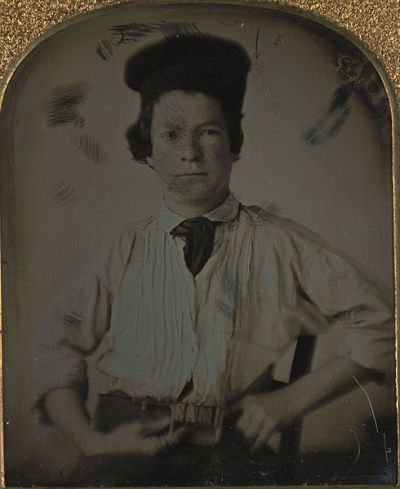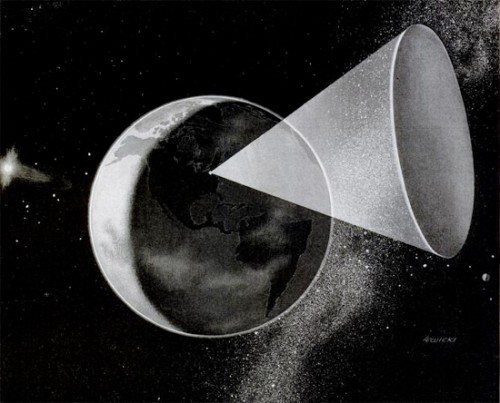Our Christian friends are often quite surprised at how enthusiastically we Pagans celebrate the ‘Christmas’ season. Even though we prefer to use the word “Yule”, and our celebrations may peak a few days before the twenty-fifth, we nonetheless follow many of the traditional customs of the season: decorated trees, caroling, presents, Yule logs, and mistletoe. We might even go so far as putting up a ‘Nativity set’, though for us the three central characters are likely to be interpreted as Mother Nature, Father Time, and the baby Sun God. None of this will come as a surprise to anyone who knows the true history of the holiday, of course.
In fact, if truth be known, the holiday of Christmas has always been more Pagan than Christian, with its associations of Nordic divination, Celtic fertility rites, and Roman Mithraism. That is why John Calvin and other leaders of the Reformation abhorred it, why the Puritans refused to acknowledge it, much less celebrate it (to them, no day of the year could be more holy than the Sabbath), and why it was even made illegal in Boston! The holiday was already too closely associated with the birth of older Pagan Gods and heroes. And many of them (like Oedipus, Theseus, Hercules, Perseus, Jason, Dionysus, Apollo, Mithra, Horus, and even Arthur) possessed a narrative of birth, death, and resurrection that was uncomfortably close to that of Jesus. And to make matters worse, many of them predated the Christian Savior.
Ultimately, of course, the holiday is rooted deeply in the cycle of the year. It is the winter solstice that is being celebrated, seedtime of the year, the longest night and shortest day. It is the birthday of the new Sun King, the Son of God—by whatever name you choose to call him. On this darkest of nights, the Goddess becomes the Great Mother and once again gives birth. And it makes perfect poetic sense that on the longest night of the winter, “the dark night of our souls”, there springs the new spark of hope, the Sacred Fire, the Light of the World, the Coel Coeth.
That is why Pagans have as much right to claim this holiday as Christians. Perhaps even more so, since the Christians were rather late in laying claim to it, and tried more than once to reject it. There had been a tradition in the West that Mary bore the child Jesus on the twenty-fifth day, but no one could seem to decide on the month. Finally, in 320 C.E., the Catholic fathers in Rome decided to make it December, in an effort to co-opt the Mithraic celebration of the Romans, the Yule festival of the Saxons, and the midwinter revels of the Celts.
There was never much pretense that the date they finally chose was historically accurate. Shepherds just don’t “tend their flocks by night” in the high pastures in the dead of winter! But if one wishes to use the New Testament as historical evidence, this reference may point to sometime in the spring as the time of Jesus’ birth. This is because the lambing season occurs in the spring and that is the only time when shepherds are likely to “watch their flocks by night”—to make sure the lambing goes well. Knowing this, the Eastern half of the church continued to reject December 25, preferring a “movable date” fixed by their astrologers according to the moon.
Thus, despite its shaky start (for over three centuries, no one knew when Jesus was supposed to have been born!), December 25 finally began to catch on. By 529, it was a civic holiday, and all work or public business (except that of cooks, bakers, or any that contributed to the delight of the holiday) was prohibited by the Emperor Justinian. In 563, the Council of Braga forbade fasting on Christmas Day, and four years later the Council of Tours proclaimed the twelve days from December 25 to Epiphany as a sacred, festive season. This last point is perhaps the hardest to impress upon the modern reader, who is lucky to get a single day off work. Christmas, in the Middle Ages, was not a single day, but rather a period of twelve days, from December 25 to January 6. The Twelve Days of Christmas, in fact. It is certainly lamentable that the modern world has abandoned this approach, along with the popular Twelfth Night celebrations. Of course, the Christian version of the holiday spread to many countries no faster than Christianity itself, which means that “Christmas” wasn’t celebrated in Ireland until the late fifth century; in England, Switzerland, and Austria until the seventh; in Germany until the eighth; and in the Slavic lands until the ninth and tenth. Not that these countries lacked their own midwinter celebrations.
Long before the world had heard of Jesus, Pagans had been observing the season by bringing in the Yule log, wishing on it, and lighting it from the remains of last year’s log. Riddles were posed and answered, magic and rituals were practiced, wild boars were sacrificed and consumed along with large quantities of liquor, corn dollies were carried from house to house while caroling, fertility rites were practiced (girls standing under a sprig of mistletoe were subject to a bit more than a kiss), and divinations were cast for the coming spring. Many of these Pagan customs, in an appropriately watered-down form, have entered the mainstream of Christian celebration, though most celebrants do not realize (or do not mention it, if they do) their origins.
For modern Witches, Yule (from the Anglo-Saxon yula, meaning “wheel” of the year) is usually celebrated on the actual winter solstice, which may vary by a few days, though it usually occurs on or around December 21. It is a Lesser Sabbat or Low Holiday in the modern Pagan calendar, one of the four quarter days of the year, but a very important one. Pagan customs are still enthusiastically followed. Once, the Yule log had been the center of the celebration. It was lighted on the eve of the solstice (it should light on the first try) and must be kept burning for twelve hours, for good luck. It should be made of ash. Later, the Yule log was replaced by the Yule tree but, instead of burning it, lighted candles were placed on it. In Christianity, Protestants might claim that Martin Luther invented the custom, and Catholics might grant St. Boniface the honor, but the custom can demonstrably be traced back through the Roman Saturnalia all the way to ancient Egypt. Needless to say, such a tree should be cut down rather than purchased, and should be disposed of by burning, the proper way to dispatch any sacred object.
Along with the evergreen, the holly and the ivy and the mistletoe were important plants of the season, all symbolizing fertility and everlasting life. Mistletoe was especially venerated by the Celtic Druids, who cut it with a golden sickle on the sixth night of the moon, and believed it to be an aphrodisiac. (Magically—not medicinally! It’s highly toxic!) But aphrodisiacs must have been the smallest part of the Yuletide menu in ancient times, as contemporary reports indicate that the tables fairly creaked under the strain of every type of good food. And drink! The most popular of which was the “wassail cup”, deriving its name from the Anglo-Saxon term waes hael (be whole or hale).
Medieval Christmas folklore seems endless: that animals will all kneel down as the Holy Night arrives, that bees hum the 100th psalm on Christmas Eve, that a windy Christmas will bring good luck, that a person born on Christmas Day can see the Little People, that a cricket on the hearth brings good luck, that if one opens all the doors of the house at midnight all the evil spirits will depart, that you will have one lucky month for each Christmas pudding you sample, that the tree must be taken down by Twelfth Night or bad luck is sure to follow, that “if Christmas on a Sunday be, a windy winter we shall see”, that “hours of sun on Christmas Day, so many frosts in the month of May”, that one can use the Twelve Days of Christmas to predict the weather for each of the twelve months of the coming year, and so on.
Remembering that most Christmas customs are ultimately based upon older Pagan customs, it only remains for modern Pagans to reclaim their lost traditions. In doing so, we can share many common customs with our Christian friends, albeit with a slightly different interpretation. And, thus, we all share in the beauty of this most magical of seasons, when the Mother Goddess once again gives birth to the baby Sun God and sets the wheel in motion again. To conclude with a long-overdue paraphrase, “Goddess bless us, every one!”








 Two lawyers were out hunting when they came upon a pair of tracks. They stopped and examined the tracks closely.
Two lawyers were out hunting when they came upon a pair of tracks. They stopped and examined the tracks closely. There are 24 shopping days left till Christmas. And 171 days left until Jesus' second coming.
There are 24 shopping days left till Christmas. And 171 days left until Jesus' second coming.


























